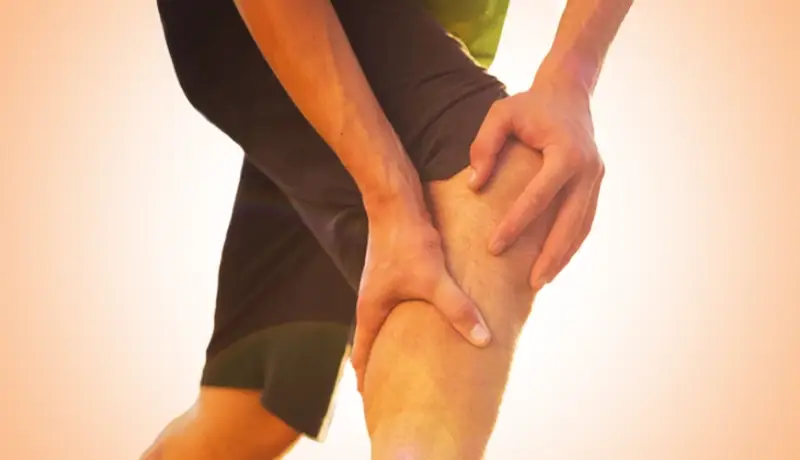Knee Pain Treatment In Islamabad
Symptoms We Treat
Arthritis
Patellar Tendonitis
Ligament Injuries (ACL/MCL)
Runner’s Knee
Meniscus Tear
Post-Surgery Rehab
Our Approach
Assessment
Pain Relief
Strengthening
Balance Training
Prevention
Expected Results
Pain relief in 1–3 sessions, mobility improvement.
Knee pain is a common problem that can affect people of all ages and activity levels. Whether caused by an injury, overuse, or a medical condition, knee pain can significantly impact your ability to walk, climb stairs, or engage in everyday activities. At Physiatrics Pain Clinic, we specialize in diagnosing and treating knee pain using state-of-the-art machines and personalized physical therapy programs. Our approach is designed to not only relieve pain but also restore full function and prevent future issues.
Book online consultation or visit us for Knee Pain Physiotherapy in Islamabad at 5th Floor, Safa Gold Mall, F-7 Markaz, Islamabad
Knee pain can arise from a variety of factors, and identifying the root cause is essential to developing an effective treatment plan. Below are some of the most common conditions that contribute to knee pain:
- Osteoarthritis: One of the leading causes of knee pain, osteoarthritis is a degenerative joint condition that results from the breakdown of cartilage. This leads to pain, swelling, stiffness, and reduced mobility. As we age, the cartilage that cushions the knee joint naturally wears down, making osteoarthritis a common issue for older adults.
- Meniscus Tears: The meniscus is a piece of cartilage in the knee that acts as a shock absorber between the bones. A meniscus tear is often caused by sudden twisting or pivoting movements, making it a common injury in sports. It can also occur gradually due to degeneration over time. Symptoms include pain, swelling, and difficulty moving the knee.
- Patellar Tendinitis: Also known as “jumper’s knee,” patellar tendinitis is an overuse injury that occurs when the patellar tendon becomes inflamed or irritated. This condition often affects athletes or individuals who engage in repetitive jumping or running activities. It causes pain at the front of the knee, particularly during movement.
- Ligament Injuries (ACL, MCL, PCL): The knee is stabilized by several ligaments, including the ACL (anterior cruciate ligament), MCL (medial collateral ligament), and PCL (posterior cruciate ligament). Injuries to these ligaments, especially the ACL, are common in sports and can cause severe knee pain, instability, and limited movement. Such injuries often require rehabilitation or surgery.
- Bursitis: Bursitis occurs when the small, fluid-filled sacs (bursae) around the knee joint become inflamed. This can result from repetitive pressure on the knee or from a direct impact. Bursitis causes pain, swelling, and tenderness, particularly when kneeling or moving the joint.
- Runner’s Knee (Patellofemoral Pain Syndrome): A runner’s knee is a condition characterized by pain around the kneecap, particularly after activities that involve running, squatting, or climbing stairs. It is caused by overuse, misalignment, or improper movement of the kneecap, leading to irritation in the surrounding tissues.
At Physiatrics Pain Clinic, we are committed to helping you overcome knee pain through a combination of advanced therapeutic techniques and customized physical therapy programs. Here’s how we can help:
- Thorough Assessment and Diagnosis: Our experts begin with a detailed evaluation of your knee pain, including physical assessments and diagnostic imaging if necessary. We take the time to understand the underlying cause of your pain, ensuring that we develop a treatment plan tailored specifically to your condition.
- State-of-the-Art Technology for Pain Relief: We utilize the latest therapeutic machines to provide non-invasive treatments for knee pain. These technologies include:
- Ultrasound Therapy: Helps reduce pain and inflammation by promoting tissue healing through deep heat generation.
- Laser Therapy: Stimulates cellular repair and reduces inflammation, accelerating the healing process.
- Electromagnetic Stimulation: Improves blood flow and reduces muscle tension around the knee, helping alleviate pain and stiffness.
- Personalized Physical Therapy Programs: Physical therapy plays a key role in treating knee pain by strengthening the muscles around the knee joint and improving flexibility. Our experienced physiotherapists will design a personalized exercise regimen to help you regain mobility, reduce pain, and prevent further injury. These exercises focus on building strength in the quadriceps, hamstrings, and calves while improving balance and stability.
- Manual Therapy and Soft Tissue Techniques: In addition to machine-based treatments, we offer manual therapy to target specific areas of tension or stiffness in the knee. Our therapists use hands-on techniques such as myofascial release and joint mobilization to enhance mobility, reduce pain, and accelerate recovery.
- Education and Preventive Care: We believe in empowering our patients with the knowledge and tools needed to manage knee pain and prevent future issues. Our team will guide proper posture, movement techniques, and lifestyle adjustments to protect your knees from further strain or injury. This includes advice on footwear, ergonomic changes, and exercises to maintain strength and flexibility.
At Physiatrics Pain Clinic, we combine cutting-edge technology with expert physical therapy to provide comprehensive care for knee pain. Our approach focuses on both relieving your current pain and preventing future complications by addressing the root cause of the issue.
If you’re suffering from knee pain and want to explore effective, long-lasting solutions, book your appointment with us today. Let us help you get back to pain-free living and enjoy the activities you love without limitations!
Frequently Asked Questions
What are the common causes of knee pain?
Knee pain can result from various factors, including osteoarthritis, meniscus tears, patellar tendinitis, ligament injuries (e.g., ACL, MCL, PCL), bursitis, and runner’s knee (patellofemoral pain syndrome). Identifying the root cause is crucial for effective treatment.
How does Physiatrics Pain Clinic treat knee pain?
At Physiatrics Pain Clinic, we use a combination of advanced therapeutic machines, personalized physical therapy programs, manual therapy techniques, and education on preventive care to treat knee pain effectively and prevent future issues.
What advanced technologies are used for knee pain relief?
We employ state-of-the-art machines like ultrasound therapy, laser therapy, and electromagnetic stimulation. These technologies help reduce pain, promote healing, and improve mobility.
What is included in a personalized physical therapy program?
Our physical therapy programs are tailored to each patient and include exercises to strengthen the muscles around the knee, improve flexibility, and enhance balance and stability. These exercises target the quadriceps, hamstrings, and calves.
Can Physiatrics Pain Clinic help prevent future knee injuries?
Yes, our approach includes educating patients on proper posture, movement techniques, and lifestyle adjustments, such as ergonomic changes and exercise recommendations, to reduce the risk of future knee problems.




